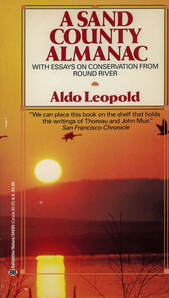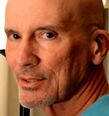A WRITER'S WIT |
My Book World

I came across this tome while letting a house in the hill country of Texas, a place where the landowners raise native grass and wildflower seeds for wide distribution and sales, also a place where owners protect the environment and earnestly promote its care.
The author, born in the late 1880s, is around sixty when he writes this book about ecology. At that time he already sees the Earth’s demise headed our way, now seventy years ago. And people wonder why we should be on fire about the current state of world environment? Since the age of early industrialization, humankind has been killing off the world, one species of botany and zoology at a time. And we’re still at it: cars and jets, fracking, coal. Land, sea, and air ruined daily one molecule at a time, even if the sun is shining, even if, in the middle of an ocean, you see nothing but blue (you haven’t yet spotted the great vortex of plastic bottles). The decay, the earth’s demise is there, rolling in slow motion. And Leopold sees this. Seventy years ago!
Leopold expresses his deep love for Nature with a lengthy history of a good oak taking seed in 1865. Metaphorically, he cuts it down, and, by surveying its eighty rings, can tell the reader what traumas the local ecology has experienced:
“Now we cut 1910, when a great university president published a book on conservation, a great sawfly epidemic killed millions of tamaracks, a great drouth burned the pineries, and a great dredge drained Horicon Marsh.
We cut 1909, when smelt were first planted in the Great Lakes, and when a wet summer induced the Legislature to cut the forest-fire appropriations.
We cut 1908, a dry year when the forests burned fiercely, and Wisconsin parted with its last cougar” (11).
“The congressmen who voted money to clear the ranges of bears were the sons of pioneers. They acclaimed the superior virtues of the frontiersman, but they strove with might and main to make an end of the frontier” (137).
NEXT TIME: My Journey of States-50 Oregon



 RSS Feed
RSS Feed